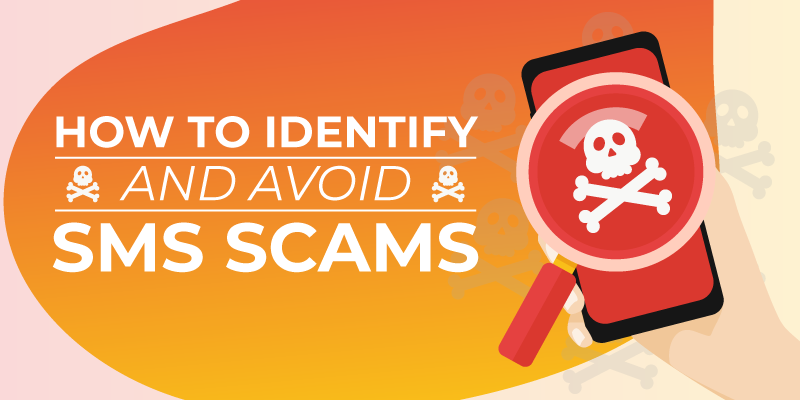Mobile devices have become ubiquitous in people’s daily lives. They use phones to browse online or connect with other people through email, calls, or text messages.
As such, it’s no surprise for you to receive unwanted text messages like marketing promo from a brand or worse, SMS scams, every now and then. Take a look at some of the common text message scam tactics below to spot and avoid SMS scams quickly.
Suspiciously long number
Whenever you receive a text message from an unknown sender, take a close look at the number. If the number is unusually long compared to official and legitimate marketing shortcodes, chances are it’s a scam.
Family emergency texts
One of the most common SMS scam tactics in the book are random family emergency texts. Scammers do this by sending a text message stating an immediate family member who lives in a location or is traveling to a location got into an accident. Then, they will ask for money transfer to help them out of it. Since it sounds real and can cause the victim to act irrationally, it works.
Contest winner
This SMS scam informs targets that they’ve won a prize or a giveaway, along with instruction on how to claim it. It often includes a hyperlink, which aims to gain the target’s personal information. If you didn’t enter any contest, it’s best to ignore the message. If you’re not completely sure, get in touch with the company or brand through other channels.
Account reactivation scam
This scam notifies targets that their account has been accessed using another device or has been compromised. As a result, it is deactivated for the owner’s protection. It looks legitimate at first, but the suspicious link or reactivation instructions can give away that it’s a scam. In case you receive this, check the account mentioned to ensure it’s still secure. Then, ignore and block the number.
To help you identify the different types of SMS scams and for some quick tips on how to stay safe online, check out the infographic below.
How to Identify and Avoid SMS Scams [Infographic] - Semaphore
Unwanted messages, calls, emails, and solicitations bombard people on a regular basis. Those who know better simply hit delete or ignore them, quickly identifying that these are scams. However, not everyone is as well-informed when it comes to identifying such schemes, especially in times of crisis like the COVID-19 pandemic.

















